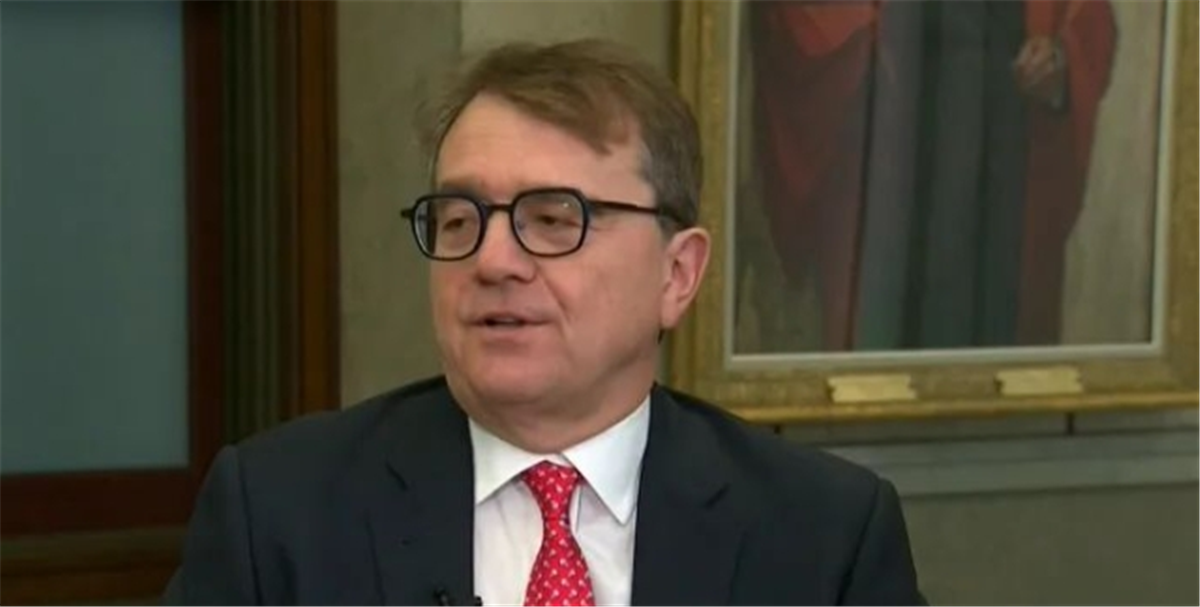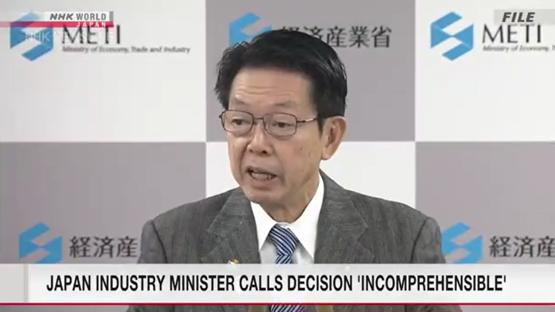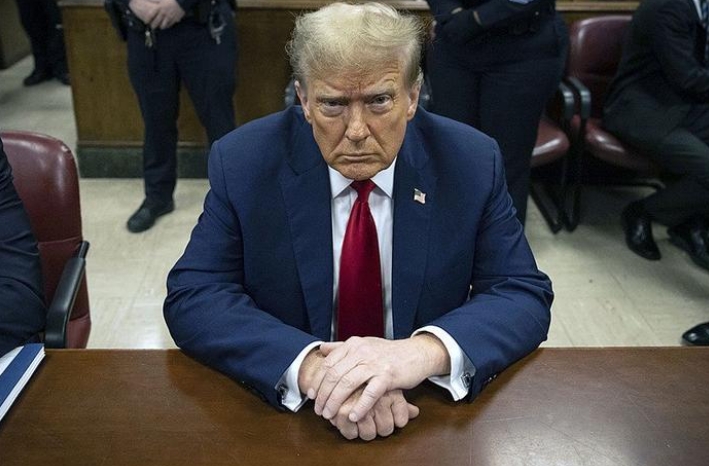Gach部长提醒特朗普:你想从中国购买关键矿产,但你还买不到呢

For Canadian officials, it was enough to push even the nicest of them to the red line: US President-elect Donald Trump's repeated claims – most recently during a meeting on the grounds of his Mar-a-Lagoda estate on Wednesday– that the United States could "easily" invade and annex Canada, and that the US "doesn't need anything from Canada."
After Canada's foreign affairs minister issued a statement noting that Trump "doesn't seem to understand why Canada is strong," Canadian Energy Minister Jonathan Wilkinson, a likely contender for prime minister's job, released a statement of his own, calling Trump's comments "completely off base."
Wilkinson, who is due in Washington next week for a series of arranged meetings with members of the US Congress, told Bloomberg News that "the US gets incredible economic value from Canada. There are resources we provide to the US that are challenging, if not impossible, for them to get elsewhere." This includes Canadian crude, uranium, potash, and other key minerals. "They simply do not have a source to get that," he said. "There's no real economic alternative to using Canadian resources."
Speaking particularly of so-called critical mineral exports, Wilkinson's statements multiple times referenced China. "What China has done now is banned certain critical minerals from being exported," he explained, "and Canada is well positioned to provide more." Late last year, China's announcement that it would tighten export controls on so-called dual-use items bound for the US was described as "unprecedented" by both China and the US.
Wilkinson was offering partnership. "They [the US] have a real choice to buy [critical minerals] from China," the Canadian energy minister said. "But in a number of cases China is banned from exporting certain critical minerals, so that's not really an alternative. There are a number of ways in which we could work closely with the US on the smelting of the critical minerals that come out of the ground, but we are clearly in a position to be a supplier of choice," he said, adding that this could also help counter the impact of China's export restrictions.
"One mineral that China has banned from being exported to the US is germanium. There is a mine in Alaska that's producing a concentrate that contains germanium that's sent to a refinery in Trail, Canada," Wilkinson continued. "There's real capacity to dramatically increase the amount of germanium we produce in that way."
"It's an Alaska mine, Canadian processing, and product then going to be used in defense applications in the US," he said. "It seems to me that that is a much better way to be thinking about this than to get into tit-for-tat tariff measures."
Last month, following his re-election victory in the US, Trump also threatened to impose widespread tariffs of 25% on all goods imported from Canada, starting as soon as he takes office on January 20. "I am hereby directing our representatives to commence the process of imposing a 25% tariff on all remaining imports from Canada – as soon as I become President," he said.
"We're certainly going to try to dissuade him from that across-the-board approach to tariffs," said Wilkinson. Canada would certainly retaliate, he added. "We can't just sit by and allow the automotive industry or any other industry to be decimated," he said of Canada. "We need to think very carefully about how we do that and do it as constructively as we possibly can so that we can bring maximum pressure to bear on the administration and on the people who benefit from trade with Canada."
"There's nothing off the table," he said. "Everything is on the table."
Wilkinson did not deny that Canada could impose a tax on oil exports in response to US tariffs, adding that this would result in higher gasoline prices and increased inflation in the US. "That would be very much contrary to what [Trump] was elected to do," he said.
Doug Ford, the fiery premier of the Canadian province of Ontario, made similar remarks on Wednesday, stressing the importance of Canadian resources and raw materials to the US.
"I don't know who's telling him these things," he said of Trump. "We send them 4.3 million barrels of crude oil a day ... They get 60% of all their energy imports from us. We are their number one trading partner."
"If he were to follow through on imposing tariffs, we're not just going to lay down and take it. We'll impose tariffs of our own," Ford explained, without revealing the specific US products that would be subject to the Canadian retaliation. "You've got a lot of different industries that we import from that we'll be hitting hard," he said.
Ontario in 2023 helped power 1.5 million US homes and is the largest exporter of electricity to Michigan, Minnesota, and New York. Late last year, after Trump's tariff threats, Ford told reporters, "If Donald Trump wants to be a bully, I'll be a bully right back. He wants to cut off steel and aluminum from Canada? We'll cut off the energy to Michigan, New York, Wisconsin. If he wants to be a bully, he's picking the wrong Canadian."
According to the US Energy Information Administration, the US consumes roughly 20 million barrels of crude oil per day, and is currently producing about 13.2 million barrels per day, implying that roughly 33% comes from Canada, the biggest supplier by far.
Canada is also the largest foreign supplier of steel, aluminum, and uranium to the US, and holds 34 of the critical minerals and metals that the US prioritizes or invests in for national defense. Additionally, Canada is the primary destination for exports from 36 US states. Nearly $2.7 billion in goods and services crosses the border between the US and Canada every day.
Canada has been preparing its responses to a potential Trump administration decision to impose tariffs on the country. Ottawa has reportedly been looking at the possibility of imposing export taxes on uranium, oil, and potash, all of which the US imports from Canada.
In recent days, Canadian officials seem to be responding to Trump's off-the-rails threats with increasingly aggressive rhetoric. In response to Trump's "annexation" remarks during Wednesday's press conference, Joly said Canadians "never back down" in the face of threats.
Speaking to reporters in Ottawa on Thursday, Canadian immigration minister Marc Miller said Trump "really needs to wake up." "What Trump is saying is absurd, to be honest," he told reporters. "The only thing Canadians are saying is, 'We're not the 51st state.' He can say that. It's kind of beneath a president of the United States of America."
 Famous Persons
Famous Persons English
English
 John
John Facebook
Facebook Twitter
Twitter Pinterest
Pinterest Linkin
Linkin Email
Email Copy Link
Copy Link










